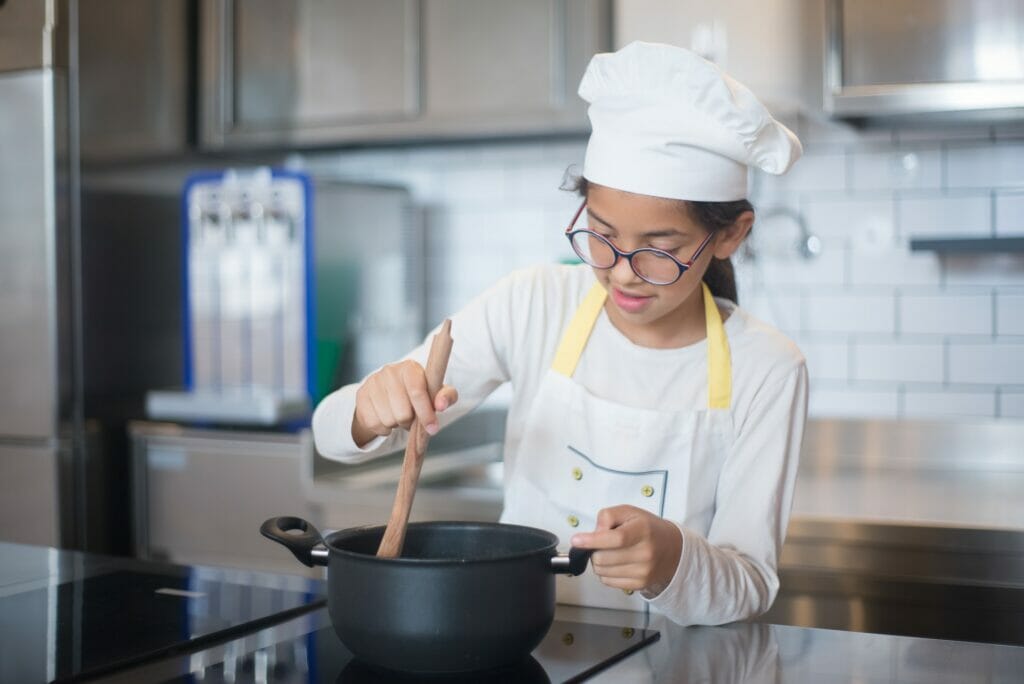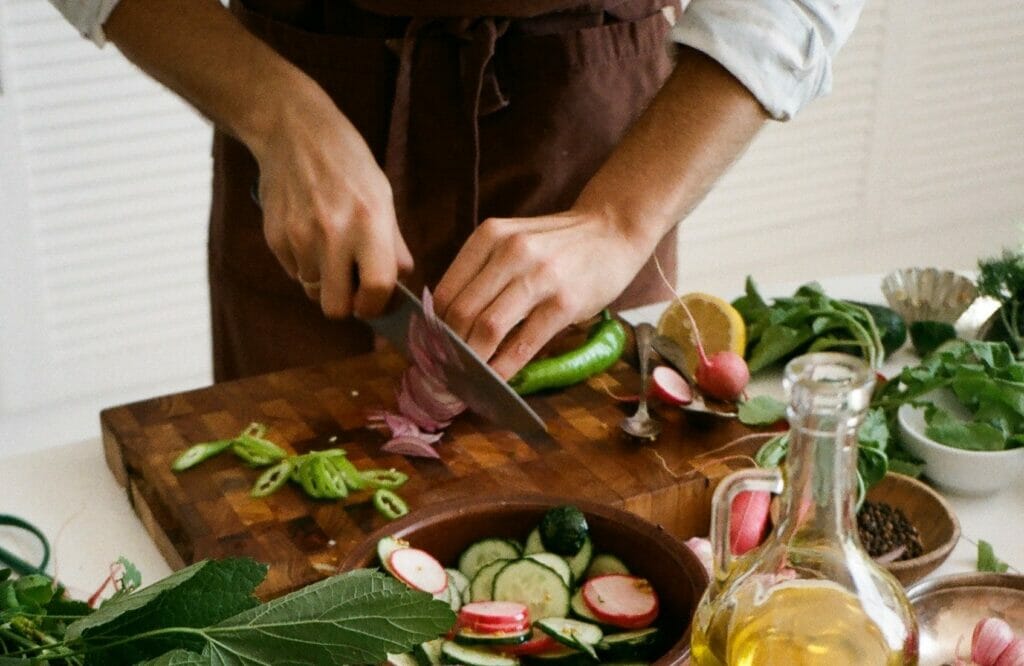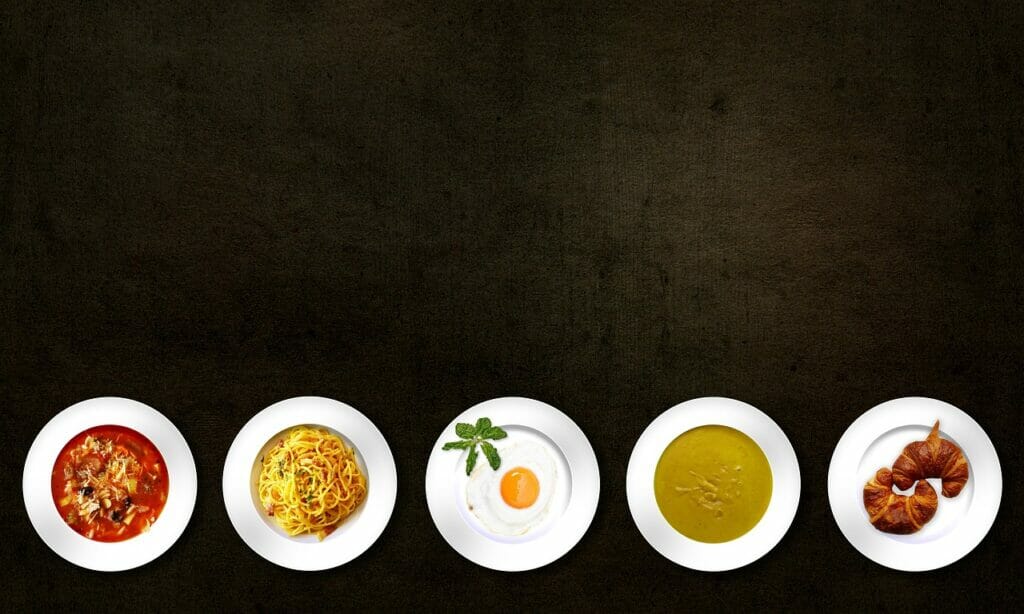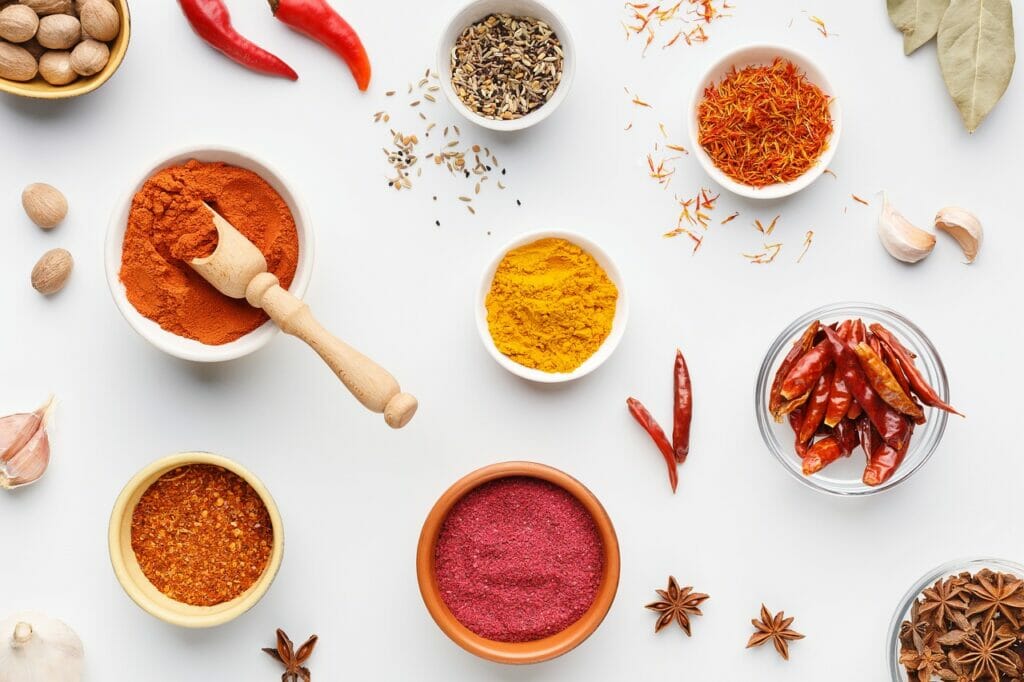Hey everyone! Are you a beginner in the kitchen and feeling overwhelmed by all the different cooking techniques and tools out there? Don’t worry, we’ve all been there and this is why we created 10 simple tips for beginner home cooks that will make your dishes out of this world. Cooking can seem intimidating at first, but it’s actually a skill that anyone can learn with a little bit of patience and practice.

So, where do you start?
Here are 10 tips to get you started on your journey to becoming a confident and competent home cook:
- Start with the basics
- Practice proper knife skills
- Learn about different cooking methods
- Experiment with different ingredients
- Learn how to properly season food
- Learn how to properly store and handle food
- Invest in quality and healthy cooking utensils and materials
- Learn how to properly measure ingredients
- Keep it simple
- Don’t be afraid to make mistakes
1. Start with the basics
Before you try to tackle any fancy recipes, it’s important to get a handle on the basic cooking techniques and tools. Start with simple techniques: Begin by learning how to chop vegetables, boil water, and make basic sauces like a marinara or a vinaigrette. Don’t worry about getting everything perfect right away – just focus on getting comfortable with the basics.
2. Practice proper knife skills
Learn how to hold a knife properly and how to use different types of knives to chop, dice, and mince ingredients. Developing proper knife skills is an essential part of being a proficient cook. It is important to learn how to hold a knife properly to ensure safety and efficiency in the kitchen.
There are various types of knives that are used for different tasks, such as chopping, dicing, and mincing. It is important to learn how to use each type of knife effectively to prepare ingredients accurately and efficiently. Some common types of knives include chef’s knives, paring knives, and serrated knives. By practicing proper knife skills, you can improve your speed and accuracy in the kitchen and be able to prepare a wide variety of dishes with ease. The article 5 Simple Knife Cutting Techniques You Will Ever Need will give you a good start with your technique and the article on The 5 Ultimate Kitchen Knives You’ll Ever Need will help you chose the knives you will keep your entire life.
3. Learn about different cooking methods
There are so many different ways to cook food, from grilling to roasting to sautéing. Each method has its own set of techniques and tools, so it’s important to learn about them and how to use them properly.
For example, grilling is a great way to add flavor to meat and vegetables, but you’ll need a grill or grill pan to do it. On the other hand, sautéing is a quick and easy way to cook food in a pan on the stovetop, but you’ll need to know how to properly control the heat and use the right tools (like a spatula or tongs) to avoid burning or overcooking your food.
Our article 17 Cooking Methods you Need to elevate your Meals now will provide guidance on all the different cooking methods and techniques and will help you elevate your skills in the kitchen.
4. Experiment with different ingredients
One of the best things about cooking is the ability to be creative and try new things. Don’t be afraid to experiment with different ingredients and flavors – you never know what you might come up with. Start by trying out different herbs and spices to add flavor to your dishes, or try using different types of vegetables or grains that you haven’t cooked with before.
You can read our article about The Most Used Kitchen Ingredients That Will Unleash Magic At Home to help you understand what are the basic ingredients you need to have in your kitchen pantry.
5. Learn how to properly season food
Properly seasoning food is an essential part of cooking that can greatly enhance the flavor and enjoyment of a dish. When seasoning a dish, it is important to consider the balance of various flavors, including saltiness, bitterness, acidity, sweetness, and spiciness.
Achieving the right balance of these flavors can make a dish more dynamic and well-rounded, as too much of one flavor can overpower the others and result in a dish that is unbalanced and unappealing. It is also important to remember the value of simple seasonings like salt and pepper, which can be used to enhance the flavor of a wide variety of dishes. Overall, properly seasoning food is a key aspect of cooking that can greatly enhance the enjoyment of a dish and elevate your skills in the kitchen.
Check our article on Mastering The Art Of Flavor: How To Perfectly Season And Balance Your Dishes to bring your seasoning skills on another level.
6. Learn how to properly store and handle food
Proper food storage and handling is crucial for maintaining food safety and preventing the spread of bacteria and illness. There are several steps that can be taken to ensure that food is stored and handled properly. These include:
- Keeping perishable items chilled in the refrigerator or freezer
- Sealing and wrapping foods tightly to prevent contamination, and
- Washing hands thoroughly before and after handling food
It is also important to label and date food items so that they can be properly rotated and used before they expire. By following proper food storage and handling guidelines, you can help to prevent foodborne illness and ensure that your food is safe and delicious to consume.
Check our article Learn How to Store and Handle Food Like a Pro to increase food’s shelf life, keep your kitchen organized, reduce waste, and ensure food safety.
7. Invest in quality and healthy cooking utensils and materials
The quality and material of your cooking utensils and materials can greatly impact the outcome of your dishes. For example, non-stick pans can be convenient, but they can also release harmful chemicals when heated. Instead, opt for high-quality stainless steel pans, which are durable and don’t release any harmful chemicals.
Similarly, using natural materials like bamboo or wood for your cutting boards and utensils can be a healthier choice compared to plastic. It’s worth investing in quality and healthy cooking materials not only for the sake of your dishes, but also for your overall health and well-being.
8. Learn how to properly measure ingredients
Properly measuring ingredients is an important step in ensuring that your recipes turn out as intended. Accurate measurement ensures that you are using the correct proportions of ingredients, which can have a big impact on the final result of your dish. To properly measure ingredients, you will need to use measuring cups and spoons. It’s important to use these tools accurately and to be familiar with common conversions, such as knowing that 1 cup is equal to 8 ounces.
When measuring ingredients, be sure to use the correct size measuring cup or spoon for the ingredient you are measuring, and be sure to level off any dry ingredients or scoop and pack down any wet ingredients to ensure accurate measurements. Proper measurement is especially important when baking, where small differences in the amounts of ingredients can have a big impact on the final result.
9. Keep it simple
When you’re first starting out, it’s important to keep things simple. Choose recipes that have fewer ingredients and steps, and don’t worry about trying to make everything from scratch. As you get more comfortable in the kitchen, you can start to branch out and try more complicated recipes. It’s also a good idea to start with recipes that use familiar ingredients and techniques, and then gradually work your way up to more advanced recipes as you gain confidence and experience.
10. Don’t be afraid to make mistakes
Cooking is a skill, and like any skill, it takes time and practice to get better. Don’t be afraid to make mistakes – they are a natural part of the learning process. If a recipe doesn’t turn out the way you wanted it to, try to figure out what went wrong and what you can do differently next time. And if you really can’t figure it out, don’t be afraid to ask for help or advice from more experienced cooks.
Have fun!
Above all, remember that cooking should be enjoyable. Don’t get too caught up in perfection – just have fun and enjoy the process of learning something new. Cooking can be a great way to relax and unwind after a long day, and it can also be a fun and social activity to do with friends or family. So don’t take it too seriously – just have fun and enjoy the journey.
Learning how to cook can seem daunting at first, but with a little bit of patience and practice, anyone can become a confident and competent home cook.
Happy cooking!
If you liked this article, then please follow EasyKitchen.me on Twitter, Facebook and Instagram for more news and tips on how to become a better cook.



